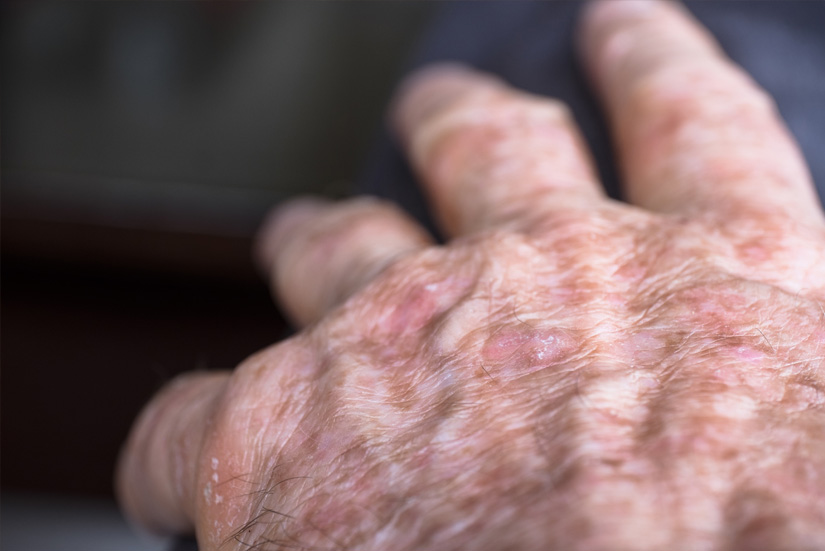An estimated 58 million Americans have at least one actinic keratosis, the most common type of pre-cancer on skin. Actinic keratosis develops with ultraviolet light exposure throughout the years. If left untreated, your risk for skin cancer increases. At Elite Dermatology and Plastic Surgery in the Greater Houston Area the dermatology team expertly diagnoses and treats actinic keratoses. Find out more about your treatment options by booking an appointment online or calling today.
Frequently Asked Questions About Actinic Keratosis
What is an actinic keratosis?
An actinic keratosis is a scaly spot of skin. If you have more than one, they’re called actinic keratoses. Actinic keratoses are precancerous, and they increase your risk of developing squamous cell carcinoma (SCC).
The most common cause of actinic keratoses is sun exposure, but ultraviolet (UV) light from indoor tanning beds can also cause them to form. They’re most common in people over the age of 40. But younger people who use tanning beds or who live in sunny areas like Florida or California may develop them earlier in life.
Protecting your skin from UV exposure can help prevent the development of actinic keratoses and skin cancer. Wear sunscreen whenever you go outside, and limit sun exposure in the middle of the day.
What are the signs of actinic keratosis?
Actinic keratoses generally develop in areas of the body that are exposed to the sun, but not always. Common signs to look for include:
- A small patch of rough or scaly skin
- A raised bump on the skin
- A hard surface resembling a wart
- Red, pink, or brown color variations
- Itchy or burning skin
If you notice areas of irregular skin, visit the dermatologist. It’s impossible to identify cancerous growths from noncancerous ones without a clinical diagnosis.

How are actinic keratoses treated?
When you come to Elite Dermatology and Plastic Surgery for a skin evaluation, the doctors perform a comprehensive exam. They may recommend a skin biopsy to determine if you have actinic keratosis or if it has progressed to skin cancer.
There are a number of treatment options available for actinic keratoses. The most common options are:
- Cryotherapy
- Curettage
- Electrodesiccation
- Shave removal
- Prescription topical medication
The dermatology team takes the size, thickness, and the number of actinic keratoses you have into consideration when determining the best treatment for you. The goal of treatment is to remove all the damaged cells so that cancer doesn’t develop.
Treating actinic keratoses by removing them helps prevent the development of skin cancer later. Trust the team at Elite Dermatology and Plastic Surgery for the best in diagnosis and treatment. Call the office nearest you or book online for your first appointment.
Schedule a Consultation at Elite Dermatology
Don’t wait to address rough, scaly patches on your skin, early diagnosis and treatment of actinic keratoses can significantly reduce your risk of developing skin cancer. At Elite Dermatology and Plastic Surgery, our experienced team is here to provide personalized care tailored to your needs. Protect your skin and peace of mind by scheduling an appointment today. Book online or call us now to take the first step toward healthy skin.

